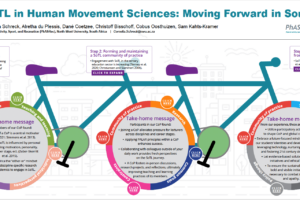Moving to Open Access: An Update on Plans for Teaching & Learning Inquiry (November 2015)
- Posted by ISSOTL Admin
- Categories Blog
- Date November 2, 2015
- Comments 0 comment
The Publications Advisory Committee sponsored an open discussion at the Melbourne conference on plans for moving TLI to an Open Access publication format. The following set of FAQs was a handout at that session. It will give ISSOTL members an up-to-date account of when and how that transition will occur.
Frequently Asked Questions
Beginning in 2016, Teaching & Learning Inquiry will become an Open Access journal published in partnership with the University of Calgary. The transition from our current subscription-based model published by Indiana University Press is currently underway. The following FAQs will give you a further sense of what to expect and how this change will benefit the scholarship of teaching and learning community.
- What exactly is an Open Access journal? An Open Access journal is a publication that anyone can access in its entirety via the Internet, without fees, paywalls, membership restrictions, subscriptions, or other financial barriers. In order to facilitate this ease of access, content is online; no hard copy is provided, though readers can download and print articles of interest.
- Why did the ISSOTL make this change?
As noted in previous reports from the Publications Advisory Committee (PAC), the move to Open Access (OA) will have a number of advantages. This more accessible format will make the SoTL community’s work more widely available, open up the journal to online-only features (see below), and reduce costs. The Committee sees OA as congruent with both the ethic of sharing that characterizes the SoTL community and with significant shifts in the scholarly publishing world. - When will the change take effect?
The 4.1 issue (scheduled for March 2016) will be the first to appear in the new OA format. This is one issue earlier than previously announced, and will prevent our making the change mid-volume. - How will the Open Access publishing model affect the reputation and quality of the journal?
TLI will continue to be a venue for the highest quality work in SoTL and will maintain its standards through outstanding peer review and editorial processes. Its reputation and quality are based on the strength of accepted work, the rigor of review, the standards of the reviewers and editors, and the ongoing wisdom of its Editorial Board. - What experience and strengths does the University of Calgary bring to this new arrangement?
Though the Publications Advisory Committee considered a number of other possible host institutions, the unanticipated move by TLI co-editor Nancy Chick to a new position at the University of Calgary made it the natural choice. The institution has an impressive track record in OA publication and now hosts almost 20 journals. Its division of Libraries and Cultural Resources is a gold sponsor of the Public Knowledge Project, providing a secure and reliable hosting platform for journals that use the Open Journals System platform, and contributing to the continual improvement of this software used by thousands of journals around the world.ISSOTL is fortunate to be working with such a committed partner as TLI makes the transition from a highly successful inaugural phase of publication through Indiana University Press to its new home and format.
- How will the Journal be financed without subscription fees?
In part because it will be an online-only journal and in part because of the possibilities afforded by Open Access, costs will be reduced from our original arrangement with IUPress, which was financially unsustainable going forward. But publishing TLI as an OA journal will be not cost-free, and costs will be higher during the transition. Once TLI is up and running in its new format we will be able to do more long range planning for the journal and its budget. - Will authors have to pay fees to publish in TLI?
No. - Will I be able to access back issues when a transition to OA is made?
Indiana University Press has agreed to make electronic versions of back issues available at no cost. As part of the transition, they will be posted on the Open Access site being established at the University of Calgary.
- How will issues of copyright and intellectual property be managed?
As an OA journal, TLI will give authors complete control over their works through the CC-BY license (https://creativecommons.org/licenses/by/4.0/). You will retain copyright and can store, post, or distribute copies of your work as you please–for instance with colleagues and students and in institutional repositories. (TLI encourages this broader sharing as a way to bring more readers to the journal.)
- Will the journal still be indexed?
Yes. Most major databases and Google Scholar allow for the indexing of Open Access journals. In addition it would be indexed in Open Access indexes like the Directory of Open Access Journals. Our new colleagues at University of Calgary are assisting us in transitioning our relationship with databases and indices.
- How do I submit an article?
Submissions to TLI will be made through the ISSOTL website.Please note that we are especially eager to receive submissions that take advantage of TLI’s new online format, which will allow authors to include audio or video files, as well as colour images and photos. Articles can also include supplementary files, including supporting evidence or raw data, survey tools, and coding protocols. Readers will have easy access through live links to resources described in articles, opening the door to interaction between authors and readers. For instance, authors may link to a feedback form that would send reader responses directly to them.
- What if I need a hard copy?
As in the past, you can download and print individual articles. If you need a hard copy of a complete issue (though it will not contain linked materials), there are several services that make this possible, at a cost of between $12 and $20.
The Publications Advisory Committee is charged with stewardship of TLI and concerns itself with the journal’s financial health and sustainability, and how it might adapt to take advantage of emerging opportunities in the world of scholarly publication. Its members are Pat Hutchings (US, chair), Sean Brawley (Australia), Mick Healey (UK), Margy MacMillan (Canada), Rebecca Nowacek (US), Tony Ciccone (US), and (ex officio) TLI co-editors Nancy Chick and Gary Poole.
Additionally, the Board created a “Transition Committee” to manage the transition process. Its members are: Dan Bernstein and Margy MacMillan (co-chairs), Nancy Chick, Pat Hutchings, Beth Marquis, and Gary Poole, with Tony Ciccone, ISSOTL President, serving as liaison to the Board.




